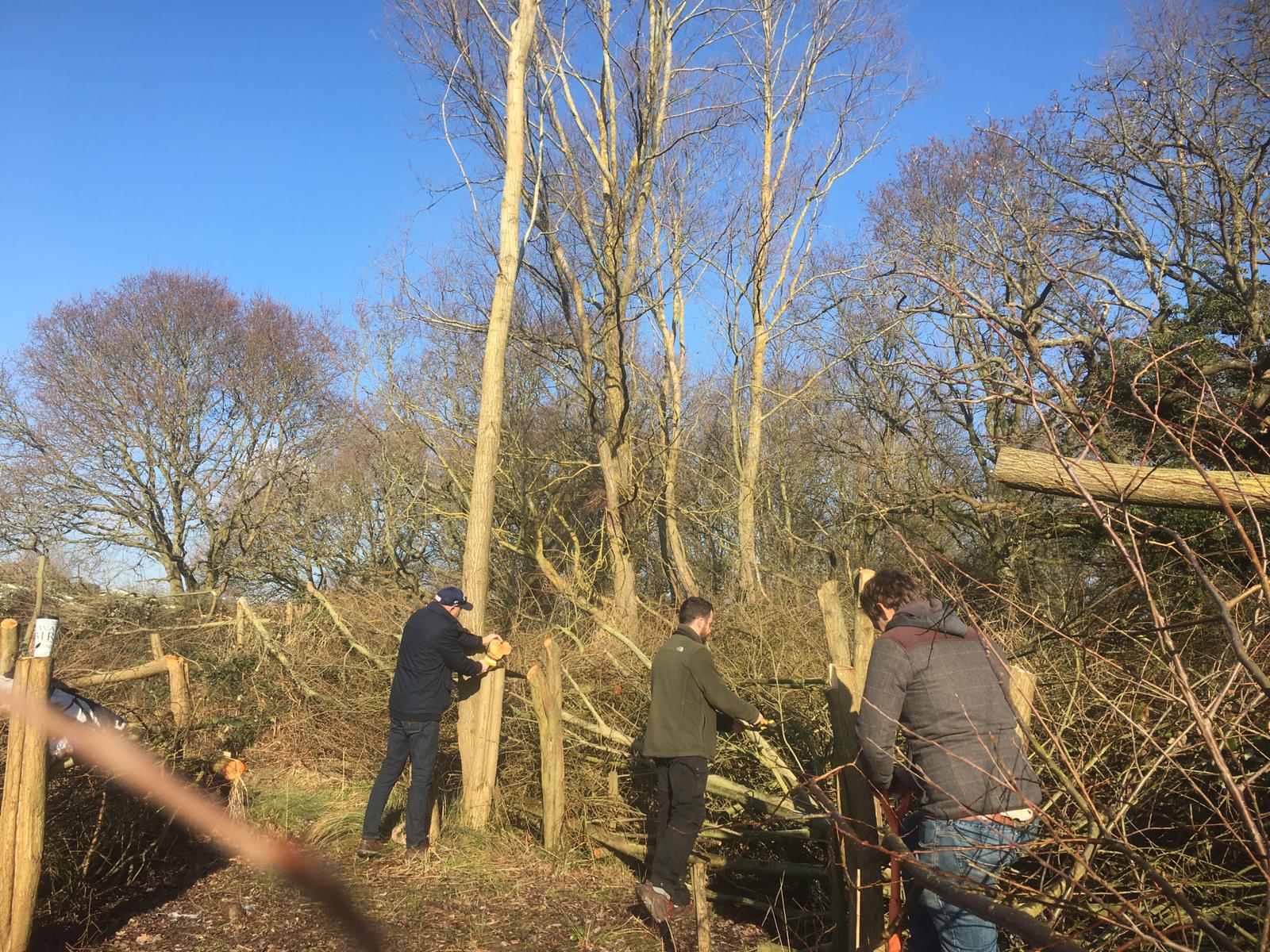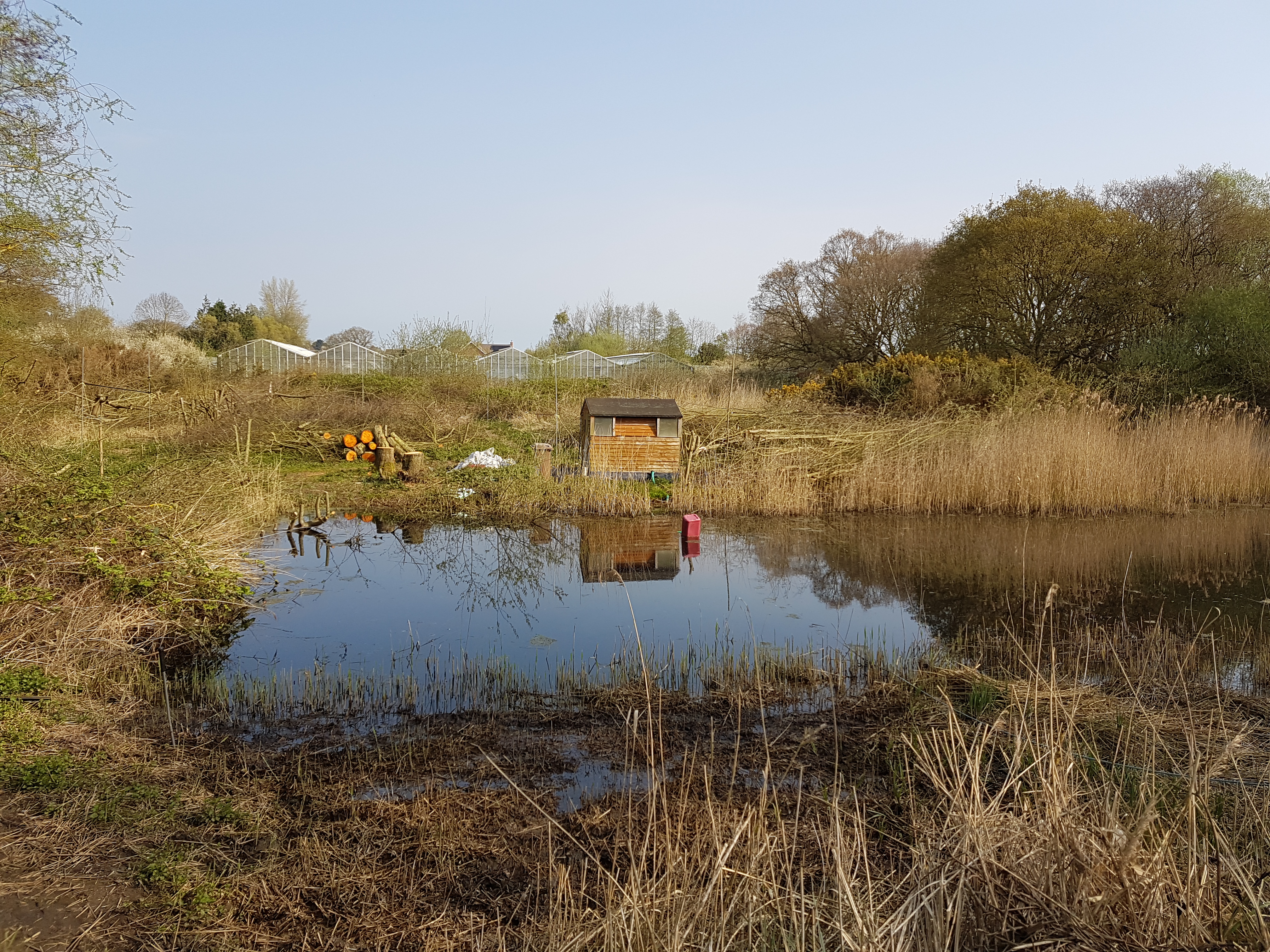Twitter: @ScrubUpBritain
Christopher Bridge, Rob Duncan and James Booty
Turtle Doves have declined by 94% in the UK since 1995 and Nightingale by 53%. The ScrubUpBritain group feel that a national focus on the required breeding habitat of dense scrub thickets is now necessary in order to help reverse these shocking declines. We would love to see more areas of land created and managed as scrub habitats to provide nesting habitat for Turtle Dove, Nightingale and the many other species which rely on such habitat including Willow Tits, Bullfinch and Brown Hairstreak butterflies.
ScrubUpBritain is a small group of amateur and professional ornithologists and conservationists who are extremely concerned about the decline in many of our iconic summer migrants which are currently disappearing from our shores. It is well known that careful management of scrubland habitat can have hugely beneficial results on the species that we wish to protect, but we are mystified at why this approach isn’t being applied on a large scale in Britain. In comparison with some other habitat management regimes, the retention and enhancement of scrub habitats is relatively inexpensive.

This is particularly true when the control of browsing herbivores such as deer is carried out, which can enable regrowth of the shrub layer while also providing a source of revenue and food. People are becoming more aware of of environmentally sound eating habits, so these two approaches should be rolled out urgently. How many of us would jump at the chance of aiding the conservation of turtle dove while eating organic meat?!
Our group manages a section of wildlife-rich valley within Newbourne, Suffolk, running adjacent to Mill River, and a private site in Hollesley, with our main aim to provide the breeding and nesting habitats required for Turtle Dove and Nightingale, as well as many of our long-distance migrant birds.
The key principles of our work are to lay immature trees and remove semi-mature trees to allow light to the ground and regrowth of the laid areas, as well as to create new areas of scrub. It would be as simple as that in the presence of our native (but sadly extinct) top predators such as wolf and lynx. Therefore, the erection of deer fencing around the perimeter is used to control browsing and it is working to astonishing effect (rewilding). We are already noticing, at these early stages, increases in common scrub lovers such as Garden Warbler, Blackcap and Whitethroat. Our sightings of Turtle Dove and Nightingale have increased since our work began, and we hope to have increased breeding pairs with time. Populations of butterflies, moths and other wildlife all benefit also, and we have plans for extending our monitoring to these groups too. However, if a real difference is to be made, the key is linking this initiative rather than one isolated project.
The necessary habitat that is needed for successful breeding just isn’t present in sufficient quantity – certainly not where we live in East Suffolk anyway. Joined up thinking needs to extend to landowners and NGOs alike. Scrub has a bad name, with many considering it unsightly and in need of ‘tidying up’. This has to change, and if we can show the public just how important this habitat is then maybe that will be the beginning of scrubbing up Britain.

Rewilding in large areas has been proven to have a monumental impact on flora and fauna. Turtle Dove and Nightingale have hugely benefited at sites such as Knepp Wilding Project; the Nightingale population increased from 9 to 31 pairs in a 10 year period. These figures tell us that there are still a sufficient number of individuals present in Europe to populate these new areas that have been created, but only with the correct habitat present and management implemented.
This project should be the template for new nature reserves, linked together across our landscape by a strong network of scrubbed up private areas. Long term management of these areas will be required to maintain the suitable growth ages and stages for scrub loving species, without which these areas will continue to develop into woodland and will gradually start losing the scrub loving species they were once so good for.
.. This isn’t rocket science, there are lots of factors at work, but we MUST do what we can, now. This includes promoting what we believe to be one of the most influential factors – nesting habitat.
Thank you for reading about our work aims and projects. Please follow our team and our work on Twitter, @ScrubUpBritain.








